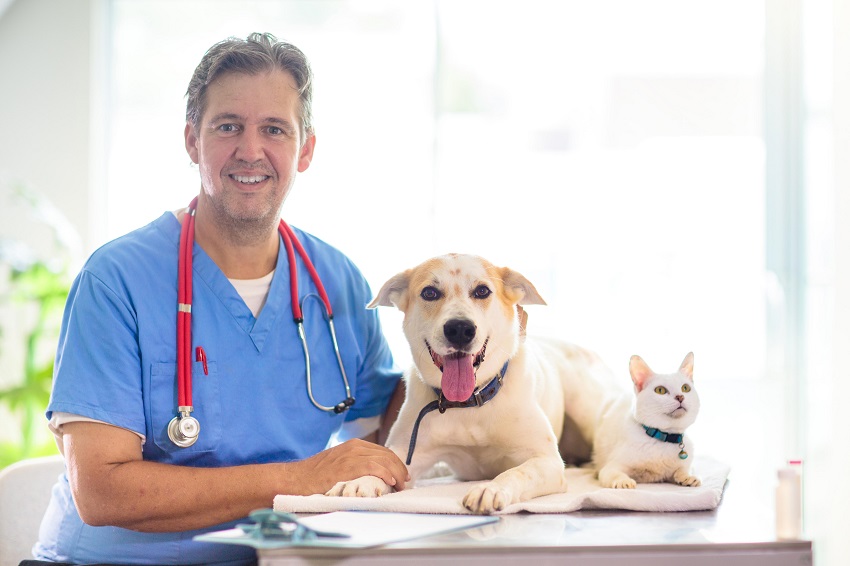Have you ever wondered what the most common dog illnesses? Believe it or not, there are several common and easily treatable diseases that dogs are vulnerable to.
Most of these illnesses are not serious, but if left undetected and untreated, some can potentially cause serious health problems for dogs.
7 Common Dog Illnesses
Quoting from petresort.com, here are some of the most common diseases suffered by dogs.
1. Dental Infections
Oral issues are actually the most common dog illnesses and tend to become a problem for dogs after the age of three.
Tartar and gingivitis are common oral problems, while more severe periodontal diseases, such as abscesses, tend to occur more frequently in older dogs in the later stages of their lives.
Symptoms of dental disease include bad breath, loose teeth, changes in appetite, especially a refusal to eat dry food, bleeding or pus from the mouth, drooling, bad temper, lumps on the gums or under the tongue, and changes in tooth and gum color.
Treatment for dental disease includes teeth cleaning, extractions, and sometimes even root canals, all of which should be performed by your dog’s veterinarian.
Oral care for your pets is crucial, and regular veterinary visits are the best way to prevent serious dental diseases. If your pets are cared for regularly, ask the groomer to clean their teeth as well.
2. Ear Infections
If your dog suffers from recurrent ear infections, the likely cause is allergies, with the most common allergens being corn, wheat, and soy in their food. However, dogs with large and floppy ears are more prone to ear infections.
If you see your dog scratching or pawing at its ears, shaking its head, or rubbing its ears on the floor or furniture, it’s a good indication that it may have an ear infection.
More severe symptoms may include redness in the ear canal, scabs or crusts around the ears, hair loss around the ears, balance issues, circling, pain, and hearing disturbances.
To treat ear infections in dogs, the first step is to clean and dry the ears. If the dog is in significant pain, it may need to be sedated for this.
A veterinarian examination will determine the type of infection the dog may have and can be treated with topical antibiotics or antifungals.
3. Itchy Skin or Skin Infections
All dogs scratch every day, but if you see your dog scratching incessantly, it’s a sign that something else is going on. The number one cause of itchy skin in dogs is food allergies.
The most common food allergens are corn, wheat, and soy found in many dog foods. Switching to a low-allergen diet, such as lamb and rice, may be key to relieving your dog’s skin itching.
However, if dietary changes don’t make a difference, a visit to the veterinarian is in order. Bacterial and fungal infections can also cause itching in dogs and lead to problems known as Hot Spots. Hot Spots cause painful sores, especially for dogs with thick fur.
Depending on the type of infection, the veterinarian may recommend something as simple as a shampoo to treat allergies or antibiotic ointment for more severe skin infections.
There are several causes of itching in a dog’s skin, so getting the right diagnosis is the first step in addressing the issue.
4. Vomiting and Diarrhea
Just like humans, dogs will experience occasional digestive upsets, and like humans, these issues will tend to resolve on their own after a few days.
However, if you see your dog vomiting or experiencing diarrhea too frequently, or if either condition doesn’t seem to go away, you should contact a veterinarian promptly. Continuous vomiting and diarrhea could be symptoms of more serious issues.
Parvovirus, worms, and parasites are diseases that can cause gastrointestinal disturbances in pet dogs. A proper diagnosis by a veterinarian will determine the problem and the appropriate treatment to be administered.
5. Stiffness and Pain Illnesses
If a dog is six years or older, you may notice that getting up from a sitting or lying position seems more difficult, or climbing stairs also appears challenging. These are common dog illnesses that cause stiffness and pain.
To treat pain and stiffness in dogs, first, ensure that the dog maintains a healthy weight. Aging is inevitable; weight gain is not.
In addition to helping the dog maintain a healthy weight, you may want to consider using glucosamine or chondroitin supplements to support joint health.
6. Urinary Tract Issues
Urinary tract infections (UTIs) become evident through symptoms such as frequent urination, house-training accidents, blood in the urine, dribbling urine, crying during urination, attempting to urinate frequently and obsessively licking the genital area.
If you observe these symptoms in your dog, take them to the veterinarian. The veterinarian will collect a urine sample to determine the type of infection and prescribe the appropriate antibiotic treatment.
7. Obesity
The best way to determine if a dog needs to lose weight is by feeling its ribcage with your hands.
If you can’t feel its ribcage, it’s a definite indication that the dog is overweight. For most dogs, obesity is quite apparent, but for dogs with a bit more fur, the rib test is the best way to determine if they need to shed some pounds.
The best treatment for obesity is providing high-quality food for the dog and ensuring it exercises regularly.
Remember, it’s important to pay attention to the dog’s behavior and notice any changes that may indicate discomfort.

Although these conditions are common and mostly not serious, they have the potential to become serious if not handled properly. If you’re unsure about your pet dog’s health, promptly take them to the vet and discuss your concerns with the veterinarian.
Protect Your Puppy From These Common Dog Illnesses
Ensure the well-being and happiness of your beloved dog with utmost care. Visit Gen’s Pet Shop for professional and high-quality pet healthcare services. Adopt a healthy lifestyle for your dog by providing top-quality food and ensuring regular exercise.
Remember, keen observation of behavioral changes and health symptoms is crucial. If you have concerns about your pet dog’s health, consult with the veterinarians at Gen’s Pet Shop for the right care.
Your furry friend’s well-being is our priority at Gen’s Pet Shop!

